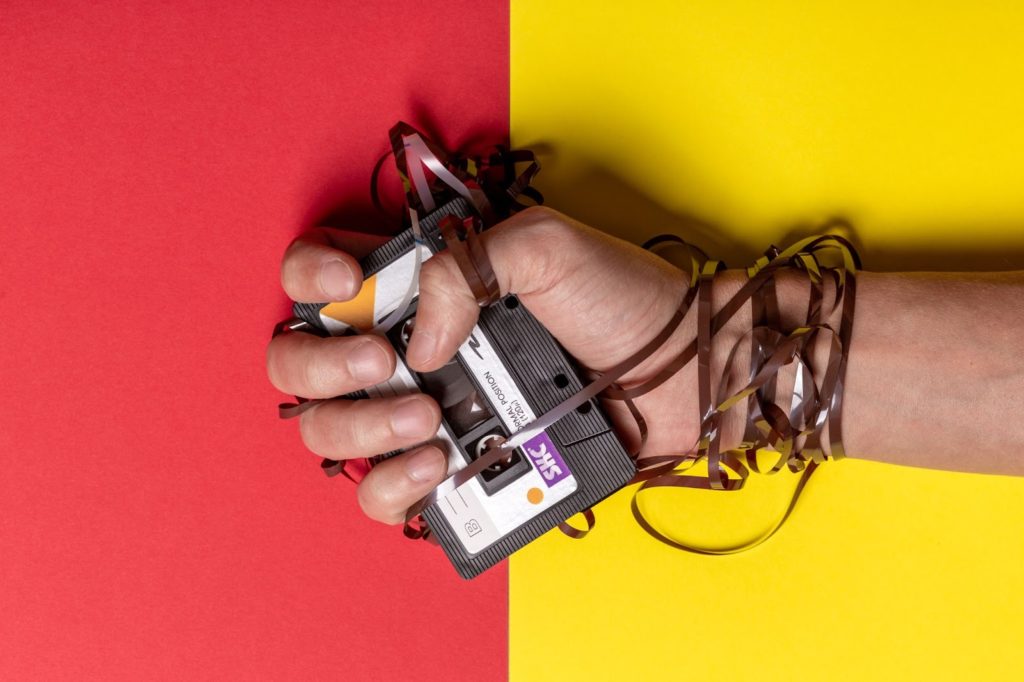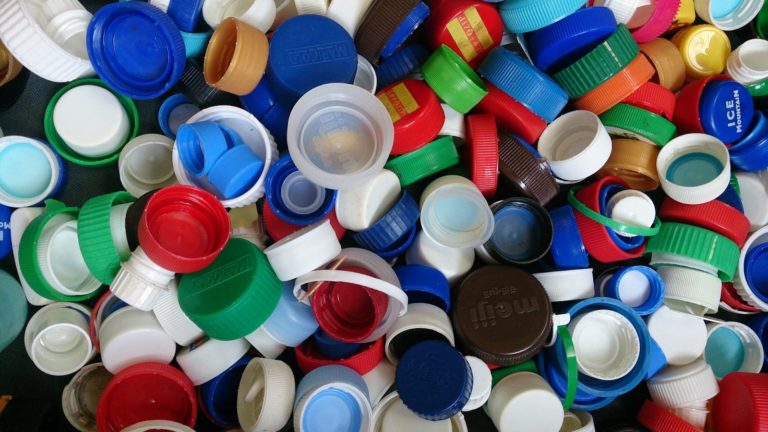How To Recycle VHS Tapes and Cassette Tapes

When the digital revolution came, record albums, CDs and even cassette tapes went into oblivion as music lovers found newer ways to store their favorite tracks. But there are still a few who continue to cherish these analog media for nostalgic reasons or for the rich sound quality they offer. These days, you won’t find anyone who owns a VHS player or a cassette player.
So what do you do if you have old cassettes or VHS tapes lying around at home? You know that tossing them into the trash is not an eco-friendly way of disposing of them; instead, you need to recycle those old tapes and VHS tapes in the most environmentally friendly way possible. In this article, we tell you how you can recycle your cassettes or VHS tapes so that they don’t become a burden on the earth.
Why is it important to recycle VHS tapes and cassettes?
Vinyl records and cassettes have been the mainstay of music listeners since the 70s and 80s. But as the times changed, these formats started to become obsolete. Earlier, cassettes were used as a convenient way to record music from the radio, then they were replaced by CDs, and later by digital music stored on computers and phones.
Vinyl records, on the other hand, were used to store and play the entire album at once, then they were replaced by more convenient ways to listen to music like the CD player and the MP3 player. In the age of digital music, the need for cassettes and vinyl records disappeared. Many of us had a cassette player at home in the 90s and early 2000s. And many of us had a vinyl player to store our favorite music from the 70s and 80s.
What Can Be Recycled From Cassettes and VHS Tapes?
If you are still wondering what can be recycled from cassettes and VHS tapes, here is the list of items that you can collect from these old analog media.
- You can recycle the metal casing from the cassette or VHS tapes. If you are collecting a large number of VHS tapes or cassettes, you can collect them in bulk and sell them to recycling companies.
- The plastic casing of cassettes and VHS tapes can be used to make new plastic items.
- The paper used to make the tape of cassettes and VHS tapes can be used to make new paper products.
- The magnetic coating on the cassettes and VHS tapes can be used to make new hybrid cars.
Where can you take your VHS tapes and cassettes for recycling?
If you are looking to recycle VHS tapes and cassettes, you will come across a few companies that collect such unwanted media. You can visit one of these companies and drop off your cassettes and VHS tapes. You can also make a call to a nearby recycling company and arrange for a pickup from your place. You can also sell your unwanted cassettes and VHS tapes to such companies and earn a few extra dollars. You can also visit your neighborhood recycling center and drop off your cassettes and VHS tapes there for the same purpose.
How do you disassemble VHS tapes and cassettes for recycling?
- When you are disassembling the cassettes and VHS tapes for recycling, you must be careful.
- You must wear the necessary safety gear while doing this work since the cassettes and VHS tapes have a sharp blade inside them.
- Before you begin to disassemble the cassettes and VHS tapes, you must mark the start and end of the tape. This will help you in keeping the tape intact.
- After marking the start and end of the tape, you must open the cassette and carefully remove the magnetic tape from inside the cassette.
- Now, you must open the VHS tape and remove the magnetic tape from inside the VHS tape. You must be careful while doing this since the sharp blade inside the tapes can injure your hands.
How to safely get rid of the plastic from VHS tapes and cassettes?
- You should always try to safely dispose of the plastic from cassettes and VHS tapes to avoid harm to the environment.
- You can safely dispose of the plastic from cassettes and VHS tapes by putting them in a bag and then placing the bag in a larger bag.
- Now, you must place the bags inside a dryer and run a full cycle on the highest heat setting.
- After the full cycle ends, you can tear open the bags and dispose of the plastic in the regular trash bin.
How to remove copper from VHS tapes and cassettes for recycling?
Before we discuss how to remove the copper from cassettes and VHS tapes, let’s first see why we need to remove the copper from these old formats. Well, VHS tapes and cassettes are made up of two metals: electromagnetic coating and copper wire. The electromagnetic coating is a thin layer of metal that helps in creating an electromagnetic field between the two poles of the cassette. The copper wire is used as an electrical conductor between the two poles.
Now, these are the two metals that you need to remove from the cassettes and VHS tapes for recycling. There are two ways that you can go about doing this.
– You can use a power drill to extract the copper wire from inside the cassettes and VHS tapes.
– You can also use pliers and a screwdriver to remove the copper wire from inside the cassettes and VHS tapes.
How to recycle old Vinyl Records?
Well, you can similarly recycle old vinyl records as you recycle cassettes and VHS tapes.
- You must open the vinyl record and remove the magnetic tape from inside it. You can open the vinyl record by placing it on a flat surface and applying pressure to it.
- You must try to peel off the cover of the record to access the magnetic tape inside.
- Now, you must cut the magnetic tape into small pieces and then dispose of them in the regular trash bin.
- You must collect the vinyl cover and place it in the paper recycling bin.
- To get the maximum benefit from recycling old vinyl records, you must clean them before you do so.
- You can use a soft cloth to clean them or you can use soapy water to get rid of any dust or dirt that is on the cover of the record.
- You can then air dry the record cover and store it away in a safe place.
Conclusion
It’s difficult to dispose of VHS tapes responsibly because each one has a tape reel that’s 1,410 feet long. Millions of VHS and audio cassette tapes are still sitting in storage or collecting dust in attics and closets.
In 2008, the manufacturing of VHS tapes ceased, and by 2012, VHS players had also been discontinued. There is little hope for the survival of VHS tapes; the format has faded away completely. Streaming services and home DVD players have long since supplanted VHS tapes as the preferred means of watching movies at home.
VHS cassettes should be recycled since their inner Mylar plastic tape is covered with metals that are considered hazardous waste, and the rest of the tape is composed of #5 plastic, which will take centuries to disintegrate. Of course, this complicates the process of recycling VHS tapes. No plastic recycling container or garbage can will accept them.
Because of their low value, VHS tapes are very difficult to recycle. The same is true when you reuse cassette tapes. The problem is that the labor hours required to disassemble the tapes so that the plastic may be recycled would be more than the value of what might be salvaged from them. In fact, those are two of the most challenging household goods to recycle, right up there with Styrofoam.
Some recycling centers will accept VHS tapes, but they can be hard to separate from the rest of your garbage. The non-recyclable part of the tape is usually melted down and used in asphalt or some other road-building material. So if you do manage to bring your VHS tapes to a recycling center, you’re helping build roads for other cars to drive on. And that’s sort of ironic.
The good news is that there are still some places that will take VHS tapes and reuse them as storage containers for foodstuff like coffee beans or sugar. If you have any old VHS tapes lying around, this may be a great use for them!





